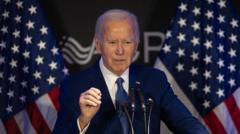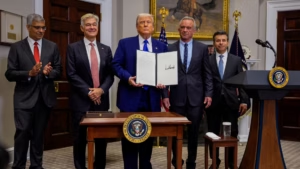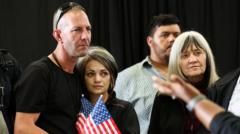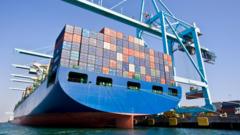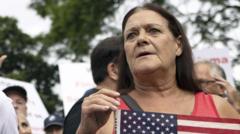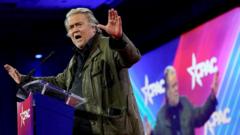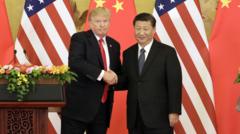President Cyril Ramaphosa has labeled a group of white South Africans moving to the United States as "cowards," criticizing their decision to leave amidst ongoing challenges in addressing the legacy of apartheid. His comments come in contrast to U.S. support for the Afrikaners' refugee status, highlighting differing perceptions of racial issues in South Africa.
Ramaphosa Critiques White South Africans Seeking Refuge in the US as "Cowards"
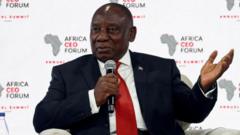
Ramaphosa Critiques White South Africans Seeking Refuge in the US as "Cowards"
The South African president's remarks aim to address the ongoing racial and historical tensions as a group of Afrikaners relocates following claims of discrimination.
President Cyril Ramaphosa has sparked controversy with his recent comments regarding a group of 59 white South Africans, predominantly Afrikaners, who relocated to the United States following the granting of refugee status by former President Donald Trump. Ramaphosa described their decision as a "cowardly act," asserting that true resilience means staying to confront one’s problems rather than fleeing.
The Afrikaners arrived in the United States on Monday amid claims of facing racial discrimination in South Africa. Trump and business magnate Elon Musk have expressed concerns over what they characterized as "genocide" against white farmers—a claim that experts have widely contested. Citing the enduring inequities anchored in the country's apartheid history, Ramaphosa questioned their motives, suggesting they are unwilling to engage with the necessary reforms to promote equity.
In a speech at an agricultural exhibition in the Free State province, Ramaphosa underscored the need for all South Africans, irrespective of race, to remain in the country and contribute to resolving its challenges. "If you look at all national groups in our country, black and white, they've stayed in this country because it's our country, and we must not run away from our problems," he said. He further assured that he believed the departing group would return, reinforcing his perspective on South Africa's uniqueness.
Social media reactions to Ramaphosa's statements have been mixed, with some supporting his views while others condemned his comments as an affront to those feeling threatened. In welcoming the Afrikaners, U.S. officials claimed they escaped "violence and terror" in South Africa, with Deputy Secretary of State Chris Landau extending a warm greeting at Dulles Airport.
Earlier discussions between Ramaphosa and Trump reportedly involved a differing viewpoint on the conditions in South Africa. Ramaphosa emphasized that the historical context of colonization has forged a unique societal construct, asserting that accusations of persecution against Afrikaners were unfounded.
As the political dialogue continues, Ramaphosa is expected to meet with Trump to address these tensions directly. Meanwhile, the broader implications of land reform in South Africa, including the government's controversial law allowing land expropriation without compensation, remain points of contention in both domestic and international arenas.

